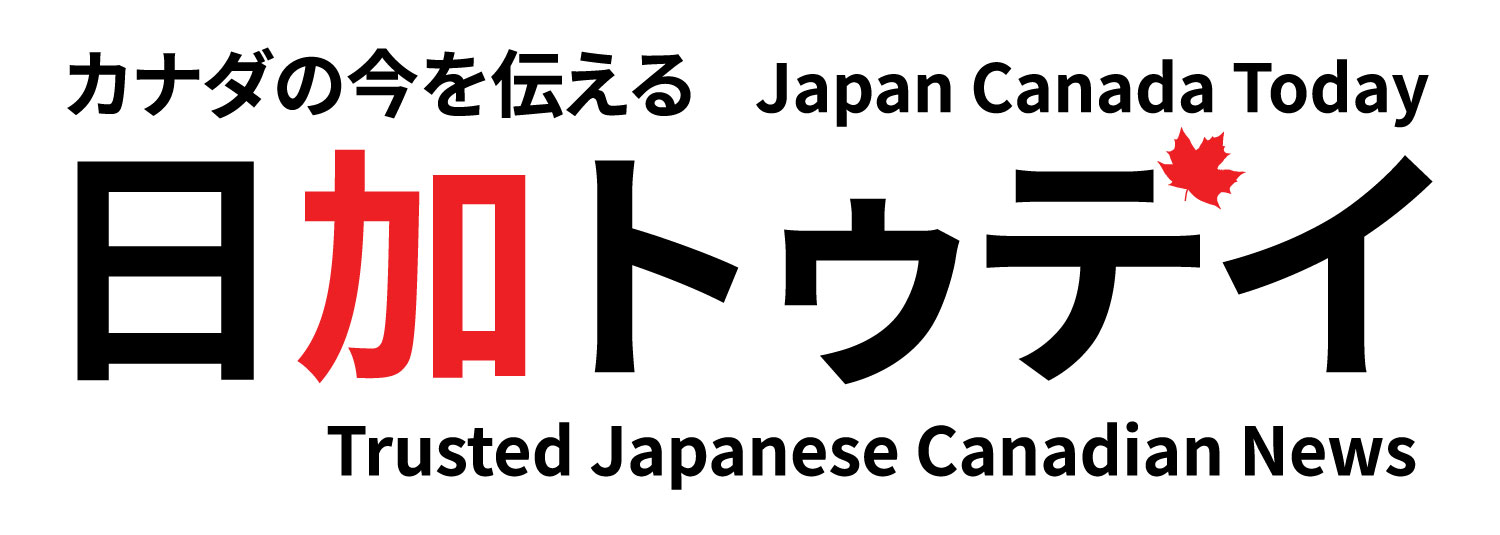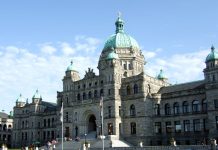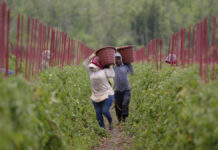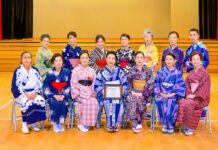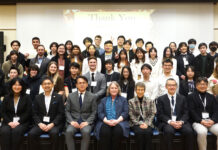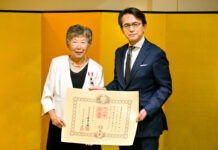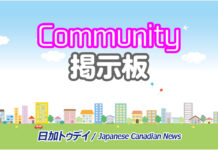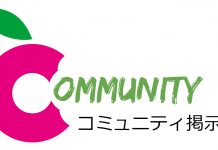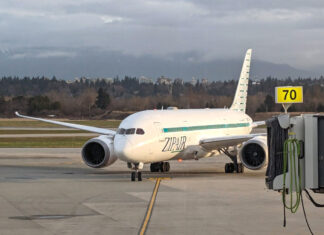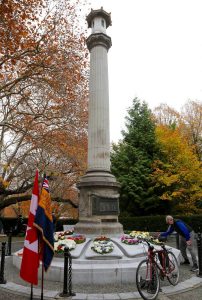
Like other communities in Canada, the Japanese Canadian community has many important days to celebrate. Some of them celebrate Japanese culture, and some commemorate Japanese Canadian history in Canada. They are not holidays, not popular or famous, but they are special days for the community.
Today, the 9th of April, is one of those days. This is the day commemorating the cenotaph in Stanley Park, Vancouver, British Columbia. According to the information in Remembrance Day Program 2020, ‘luncheon given by the Canadian Japanese Association on the occasion of the unveiling of a memorial to the Japanese who served in C.E.F. Hotel Vancouver, April 9, 1920’. This is the day the Japanese Canadian community proudly unveiled that tall white memorial for the Japanese Canadians who fought the war for this country.
One year ago today was the centennial anniversary, and the community was supposed to have a big celebration. Unfortunately, it had to be scaled down due to the COVID-19 pandemic, which had just begun. This year, as we are still fighting against the same virus, we are once again not allowed to celebrate, as big parties are not allowed anywhere in Canada.
It was meant to commemorate many anniversaries, as was explained by Ms. Linda Kawamoto Reid on Remembrance Day last year. There only were a handful of people allowed to attend. Even though people did not participate in person, many watched the ceremony online and remember what happened to the Japanese Canadians for over 100 years. In the ceremony, the moderator, Mr. David Iwaasa said, “we are the beneficiaries of the sacrifices that are made by all those who are commemorated here.”
Today, the Japanese Canadian community is not as politically strong as the other communities or does not raise strong voices against anything of everything. However, the community has made themselves as resilient and tolerant as they could and stands rooted and peaceful as the cenotaph built 100 years ago. Canadians respect and trust the people in the community. It doesn’t matter whether you are the 4th generation or just landed in Canada. Canada and Japan have the best relationship in the world. We are lucky to be who we are here in Canada today. That’s all because generations of Japanese Canadians made efforts to give a better life to the proceeding generations and made the best relationship with every community.
I have comments from three representatives of the Japanese Canadian community on the history of not only the Japanese Canadians but also the Canadians. These comments are supposed to be for Remembrance Day, 2020. This is my sincere apology that it is long overdue. But, on this day, I respectfully present these thoughtful comments by people who dedicate their time and effort to the rights of Japanese Canadians today.
Ms. Linda Kawamoto Reid
Chair of the Japanese Canadian War memorial Committee
Remembrance Day was meant to commemorate many anniversaries this year:
The Cenotaph’s 100th anniversary, the 75th anniversary of the end of the Second World War, and the 70th anniversary of the start of the Korean War. We acknowledged them all in the brochure (you can find the brochure at the bottom).
For example, the focus of the speakers chosen was to commemorate the 100th anniversary and 100 years. Susan Yatabe’s speech was about her grandfather, who spoke at the original dedication of the monument. David Mitsui’s story spanned so many years but for sure, from 1919-1987 when his grandfather fought so hard for equal rights. The highlight was he came back to relight the cenotaph lantern in 1985. And Corporal Kubota’s grandchildren, Brad & Kathy, spoke of his contribution to the legacy of the Cenotaph by bringing back the Honour rolls and legion flag to the Language School. That original flag is in the Nikkei National Museum, and we fly the legion #9 replica flag each year.
This story is the quintessential story of the two battles that these men fought in the three wars – First, Second and Korean War. The story is worth repeating over and over again, as it’s the fundamental teaching point in Canadian History about our multicultural country. And it wasn’t only the soldiers who fought this battle, but also other people, such as Tomekichi Homma or Hide Hyodo, who braved and dared to challenge the racism by seeking the franchise.
Ms. Kawamoto also commented on racism against people in Asian communities in this pandemic.
“I struggled with this point a lot, as I see what is going on now with Asians being targeted. I believe we are more tolerant and can do better. We have many cultures around us every day in almost every city, and we have learned to live with each other.” She also said, “I want to believe that this is not wartime hysteria, but that we are stretched to survive this global pandemic against a virus that is causing havoc around the world, killing people. It doesn’t then help to have a war amongst ourselves.”
Ms. Lorene Oikawa
President of National Association of Japanese Canadians (NAJC)
Every Remembrance Day, the National Association of Japanese Canadians honours the Japanese Canadians who served Canada from the First World War to today. This year was special because it is the 100th anniversary of the Japanese Canadian cenotaph in Stanley Park in Vancouver. It’s important to share these stories because not everyone knows the history of Japanese Canadians, which is Canadian history.
During World War I and II, Canadians of Japanese ancestry wanted to show their loyalty to Canada, and each time they were first rejected. In 1916, after being rejected, Japanese Canadians travelled to Alberta to join the Canadian battalions of the British army. In 1942, about 22,000 Canadians of Japanese ancestry were declared enemy aliens, including the soldiers who fought for Canada in World War I. They are forcibly removed from their homes, all property and possessions are seized (and later sold without permission), and they are sent to internment camps. Japanese Canadians try to enlist with the Canadian military and are denied. In 1945, the British army arranged for Japanese Canadians to be allowed to enlist. Japanese Canadian men volunteer for service in the Far East. The Japanese Canadian community continues to be denied their rights and are not allowed to return to the west coast of British Columbia until 1949, four years after the end of World War II.
Descendants of the First World War veterans were able to join this year’s ceremony in person and online and share the stories of their ancestors.
I was honoured to lay the wreath on behalf of the National Association of Japanese Canadians. As we were all remembering and reflecting during the ceremony, I was remembering my uncle, Tatsuro Buck Suzuki, who served Canada in WWII, and then came home to fight for fishers’ rights and the environment.
Thank you.
Website: najc.ca
Facebook: National Association of Japanese Canadians
Twitter: @najc_ca
Ms. Judy Hanazawa
President of Greater Vancouver Japanese Canadian Citizens’ Association
I am so appreciative of the sacrifice and perseverance of all those Japanese Canadians who were prepared to give their lives to demonstrate their loyalty to Canada throughout the last 106 years. As stated at the November 11, 2020 ceremony, prior to 1949, they had fought to seek the and right of citizenship by demonstrating their worthiness and loyalty as Canadian soldiers. Japanese Canadians continue to serve today demonstrating as their predecessors did, their love of country and sense of duty to Canada.
The Memorial in Stanley Park is an incredible monument to honour the bravery and sacrifice of our past and present heroes. When the monument was built in 1920, despite those who had served and died in WW1, Japanese Canadians were still unable to become citizens, and still experiencing rampant racism, economic and social inequality, and marginalization. That the community was independently able to erect such an outstanding memorial is a feat in itself because it not only indicated the focused intent of the community to honour those Japanese Canadians who sacrificed – it also demonstrated our community’s great effort to affirm and declare our identity as Canadians.
The monument stood for 22 years when the Japanese Canadian internment and dispossession were enacted in 1942. Canada and especially British Columbia continued to indicate deep seated systemic racism and rejection of our people using the excuse of the Pacific war as a reason to exile Japanese Canadians from the province permanently. Our community was dispersed across Canada and had no freedom until 1949 – 4 years after the end of WWII. Out of 22,000 only 4000-5000 returned to BC to start lives again, this time with the right of full citizenship finally given.
The monument continues to stand today as an affirmation of our history, our respect to those in the community who sacrificed their lives for their country, and our continuing declaration as a community, despite the history of injustices, that Canada is where we belong.
(Reporting by Naomi Mishima)
Related Articles
Lighter_Remembrance-Day-Program-2020-8-pages-EVG-Crops-REV